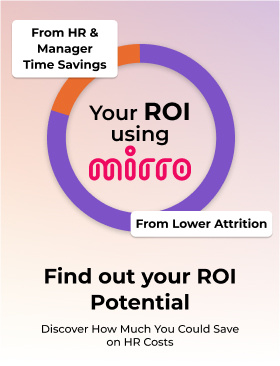SECTION
OKR vs KPI: Main Differences and Applications

Listen to this article:
Note: This article was updated on April 24, 2025, with a detailed comparison of OKR vs KPI and proven strategies for implementing both frameworks.
How do successful companies accomplish their short and long-term goals? Pursuing your company's success means understanding how crucial it is to measure team and business performance. The answer lies in OKR vs KPI: two of the most common goal-setting methods out there.
OKRs (Objectives and Key Results) and KPIs (Key Performance Indicators) are powerful tools in performance management, each with unique strengths. OKRs are ambitious, outcome-focused goals meant to inspire innovation and align teams toward transformative change. KPIs, on the other hand, track ongoing performance to ensure operational success and stability. While OKRs push organizations toward growth, KPIs maintain consistency.
This guide covers both frameworks, exploring their differences, use cases, and how they complement each other. With practical examples, step-by-step advice, and insights into avoiding pitfalls, this article equips you to master performance management whether you’re aiming for bold leaps or steady progress.
What are OKRs?
OKRs (Objectives and Key Results) are a goal-setting framework meant to define ambitious goals and track their achievement through measurable outcomes. Popularized by companies like Intel and Google, OKRs are a staple for organizations aiming to innovate.
How do OKRs work?
OKRs consist of two core elements:
- Objectives are qualitative, inspiring statements that define what you want to achieve. They are bold, memorable, and time-bound.
- Key results are quantitative milestones (typically 2-5 per objective) that measure how you’ll accomplish the goal.
Example of an OKR
To better understand how OKRs work, let’s consider the sales department of a tech company aiming to boost its revenue and market presence:
Objective: [Company X] increases its sales pipeline and revenue from small business clients.
- Key Result 1: Generate 50 new qualified leads per month by the end of Q2
- Key Result 2: Close $1M in new contracts by the end of Q2
- Key Result 3: Improve the lead-to-deal conversion rate by 15% by Q2
This example shows how OKRs can be used to align the sales team with clear, measurable outcomes. If you want to learn how to set OKRs effectively, read our article on How to Write OKRs, which has clear instructions and proven formulas.
Why use OKRs?
OKR is a bold strategy that implies understanding the company's goals through a set of specific and measurable actions for each team member of the organization. OKRs shine when you need to:
- Set stretch goals that challenge the status quo;
- Align teams and individuals around shared priorities;
- Foster transparency and a culture of innovation.
What are KPIs?
KPIs (Key Performance Indicators) are metrics used to evaluate the success of specific activities, processes, or goals. Unlike OKRs, which set direction and focus on the future, KPIs measure performance and track how well an organization is doing compared to benchmarks.
How do KPIs work?
KPIs are standalone, quantitative metrics tailored to critical areas like sales, customer experience, or operational efficiency. They provide a snapshot of performance over time.
Typically, a KPI is expressed in percentages or averages, and the question of why has to be answered. KPIs must be actionable and divisible.
Example of KPIs
To better understand how KPIs work, let’s imagine an e-commerce business. In this case, the business uses KPIs to monitor critical performance metrics, ensuring that revenue goals are met:
- KPI 1: Monthly revenue (target: $500,000).
- KPI 2: Cart abandonment rate (target: <20%).
- KPI 3: Average customer response time (target: <2 hours).
Why use KPIs?
KPIs indicate how you’re doing right now and are perfect for:
- Monitoring ongoing processes and operational health;
- Providing real-time insights into trends or issues;
- Ensuring consistency and meeting performance standards.
OKR vs KPI: a detailed comparison
Now that you have an overview of each goal-setting methodology, let's look at their main differences. While OKRs and KPIs both involve looking at metrics, their purposes, focus, and applications differ significantly. Here's a comprehensive breakdown of OKR vs KPI:
TLDR? 👇
- OKRs are proactive and forward-thinking, setting the stage for where you want to go;
- KPIs are reactive, showing how well you’re doing now;
- OKRs are a well-established system that empowers teams with ownership of ambitious goals;
- KPIs are simply metrics that align with departmental responsibilities, ensuring operational success.
Can OKRs and KPIs work together?
Of course, KPIs and OKRs can work well together and are actually more powerful when combined! This combo can help your company stay focused on improving its marketing strategies, profits, or any other aspect that will help it develop and succeed.
For example, KPIs can reveal weaknesses that inspire the implementation of a bold OKR framework.
Let’s imagine a retailer who sees a declining customer retention rate (KPI: 60%), so they decide to adopt the OKR methodology to boost customer satisfaction and have a more action-oriented approach:
Objective: Customer satisfaction is at the core of everything we do
KPIs like “average purchase frequency” then track ongoing success. Here, the retailer uses the declining KPI as a trigger to set a proactive OKR, aiming to reverse the trend by implementing a rewards program that incentivizes repeat purchases. KPIs provide ongoing feedback on its effectiveness.
- Key Result 1: Increase retention rate to 75% by Q2;
- Key Result 2: Launch a rewards program with 10,000 signups;
- Key Result 3: CSAT: Achieve a 95% customer satisfaction rate.
How to implement OKRs vs KPIs
Implementing OKRs and KPIs effectively requires a structured approach, clear communication, and the right tools. Below, we’ve outlined detailed step-by-step guides for both frameworks:
Implementing OKRs: a step-by-step guide
1. Start with the company’s long-term vision
Effective OKR strategies start with setting a bold and inspiring company-wide objective that is clear to everyone on the team. The business objective sets the tone for all team efforts, ensuring that OKRs aren’t just random goals but part of a cohesive vision. Without this anchor, teams might lose focus.
2. Craft ambitious key results
Collaborate with your team to create high-impact business objectives that are aligned with the company-wide goal. These should quantify success and be challenging yet achievable.
Remember that you should not set more than five key results per objective, as they can demotivate teams. Try to strike a balance between ambition and feasibility by testing targets against past data or industry benchmarks.
3. Keep it focused
Limit OKRs to 3-5 per cycle (e.g., quarterly) at each level (company, team, and individual) to maintain clarity and prevent overwhelm. In the OKR framework, prioritization is key. Too many OKRs dilute focus and resources.
Rank potential OKRs by their alignment with strategic goals and potential ROI. For example, a sales team might prioritize “Increase enterprise deals by 25%” over “Redesign the pitch deck” if revenue growth is the top priority.

4. Monitor progress
Setting good OKRs won’t help you achieve great things if you don’t monitor them regularly. Schedule regular check-ins (weekly or biweekly) and a formal quarterly review to track progress, address any obstacles, and make adjustments as needed.
OKRs are dynamic, so monitoring keeps them relevant amid shifting priorities or unexpected challenges, ensuring teams stay on course.
5. Celebrate success
Whether hitting 100% of a key result or making significant strides (e.g., 70% on a stretch goal), taking the time to recognize and celebrate successes is essential. You can do so through shout-outs, rewards, or team events.
Even “failures” (e.g., 50% completion) can be framed as learning opportunities. Discuss what worked and what didn’t to refine future OKRs.
6. Use OKR software
Using OKR tracking software can help tremendously by streamlining this process. Paired with performance management software, it can do wonders for your team. A tool like Mirro helps leaders align their teams to company objectives and better understand performance. Mirro enhances alignment, accountability, and transparency with features like goal tracking, performance insights, and workforce insights.
Here’s what our tool can do for your company:
✅ Achieve complete transparency by seeing company goals at any time;
✅ Quickly see the objectives that are aligned as well as unaligned ones;
✅ Customize the key results’ measure unit so they will genuinely reflect your metrics;
✅ Easily track progress on goal completion: all progress updates and changes are visible along with the time and name of the editor;
✅ Access OKR history to compare current data;
✅ Use OKRs as a conversation starter and discuss them in performance reviews or team meetings.
If you want to implement the OKR framework in your company, let us show you how in a free demo! We promise to help you track progress and motivate your team.
.png?width=758&height=483&name=OKRs%20(1).png) Mirro's OKR software
Mirro's OKR software
Implementing KPIs: a step-by-step guide
1. Pinpoint priorities
If you choose KPIs as your goal-setting method, start by identifying 3-5 key areas critical to your business’s success, such as revenue, customer satisfaction, or operational efficiency, and select metrics that reflect these priorities.
2. Set benchmarks
Then, define specific targets for each KPI based on past performance, industry benchmarks, or strategic goals. Benchmarks make KPIs actionable and measurable. Remember to set a realistic yet challenging target, such as 10% growth.
3. Collect the data
Establish reliable systems to gather accurate, timely data for each KPI, whether through dedicated software, surveys, or manual tracking. KPIs are only as good as the data behind them. Poor data quality leads to misguided decisions, while consistent collection ensures trust in the metrics.
4. Visualize the data
Use tools tailored to your needs to create dashboards or reports to display KPI performance in real-time or at regular intervals. Visualization makes KPIs accessible and actionable, helping teams spot trends, celebrate wins, or address issues quickly.
5. Act on insights
Similar to OKRs, regularly reviewing KPIs (e.g., monthly or weekly) is essential to analyze trends, identify gaps, and adjust strategies or operations accordingly. KPIs are diagnostic tools. Without action, they're just numbers. Regular reviews turn data into decisions that improve performance.
OKRs and KPIs: better together
Whatever method you decide to implement in your company, the bottom line is that you must measure and review performance regularly.
You shouldn’t look at OKRs vs KPIs as rivals but rather as partners. Together, they strike a balance between ambition and execution. OKRs set the destination, while KPIs track the journey.
Use OKRs to inspire bold moves, KPIs to maintain stability, or both to align vision with action. Assess your needs: Are you chasing growth or refining operations? With this guide, you’re ready to wield these tools for measurable success.
-
What's the difference between OKRs vs KPIs?
-
What are the most common mistakes to avoid with OKRs?
-
What are the most common mistakes to avoid with KPIs?
OKR is a strategic framework, whereas KPIs are simply metrics. The OKR goal-setting method is used to develop a high-level strategic plan to achieve business objectives while aligning team efforts to them. KPIs might be the metrics used to measure the success of a project.
The first mistake people make is confusing OKRs with task lists. OKRs focus on outcomes, not to-dos. This mistake occurs when a team prioritizes completing a list of actions (like emailing prospects) over achieving a meaningful result (like revenue growth). The same goes for overloading your team with OKRs. Too many OKRs (e.g., 10 per cycle) scatter focus. Limit to 3-5 for clarity. Another common mistake is skipping reviews. Without follow-ups, OKRs lose steam. We recommend planning consistent monthly or bi-quarterly check-ins to stay on track.
The first mistake people make is focusing only on vanity metrics. Tracking “website visits” without context wastes time. Focus on KPIs like “sales from traffic.” The same goes for setting too many KPIs. Monitoring 20+ metrics overwhelms teams. Pick 3-5 critical ones to maintain clarity and focus. Another common mistake is using static KPIs. Outdated KPIs (e.g., tracking fax usage in 2023) lose relevance. Update regularly.






